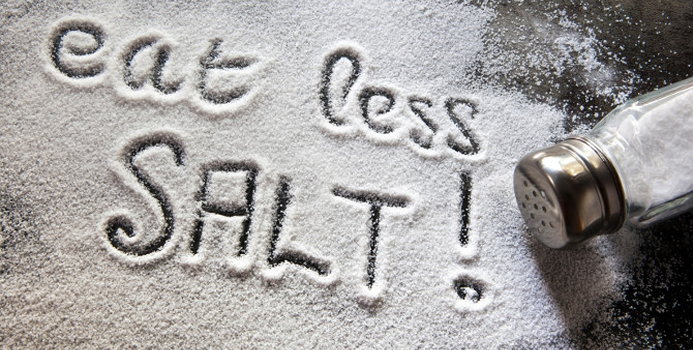Salt is a vital mineral that is needed for the healthy functioning of the human body. However, most modern diets contain too much salt and consuming too much can lead to hypernatremia, or an imbalance of the amounts of salt and water in the body, in the short term, and increased blood pressure, heart disease, stroke and osteoporosis in the long term. The recommended daily intake for the average person is around 6 grams of salt per day, but average consumption is closer to twice that number. So how do you tell when you are consuming too much salt?
Processed and Fast Foods
If a large part of your diet consists of processed and fast foods, you are almost certainly taking in too much salt. In fact, 77% of salt in the average US diet comes from processed foods. Salt is added to these foods to increase their storage life and to make them taste better. Try to reduce the amounts of processed foods in your diet, replacing them with fresh, whole foods, or if necessary, with processed foods that have been labeled as low salt or low sodium.
Hypernatremia
Hypernatremia occurs when a person becomes dehydrated and the kidneys cannot cope with excess salt in the bloodstream. This condition can happen when people have been vomiting, or have a fever, or when they are exercising too much, not replacing fluids and have too much salt in their system from drinking salty sports drinks or tablets, or from salty foods. This is a serious condition that can lead to brain damage, and anyone with the symptoms of it should be given fluids, then seen by a doctor. Some of the symptoms include irritability, muscle cramps, confusion, depression and vomiting.
Bloating
Salt can cause water retention as the body tries to dilute the salt with large amounts of water. This can cause bloating which is uncomfortable and may be unattractive. The best way to reduce this bloating is to drink more water, which will help to flush the salt out of your system.
Excessive Thirst
Generally people who are consuming too much salt tend to also be more thirsty, although this could also be caused by environmental or lifestyle factors, or by other underlying conditions like diabetes. If you are drinking a lot more water lately and didn't make a decision to do so, it might be worth going to get a blood test.
Blood Tests
There are few immediate symptoms of too much salt in the diet and many people don't realize it is a problem until they develop the long-term effects, such as high blood pressure, which itself may not have many symptoms. Blood tests may be ordered as part of a full health check, particularly if high blood pressure is already present, to determine the levels of sodium in your tissues.
Salt should not be cut out of a diet completely, but the vast majority of people should try to reduce their current salt intake. The long-term damage of a high salt intake is not worth the immediate convenience of modern processed foods.



